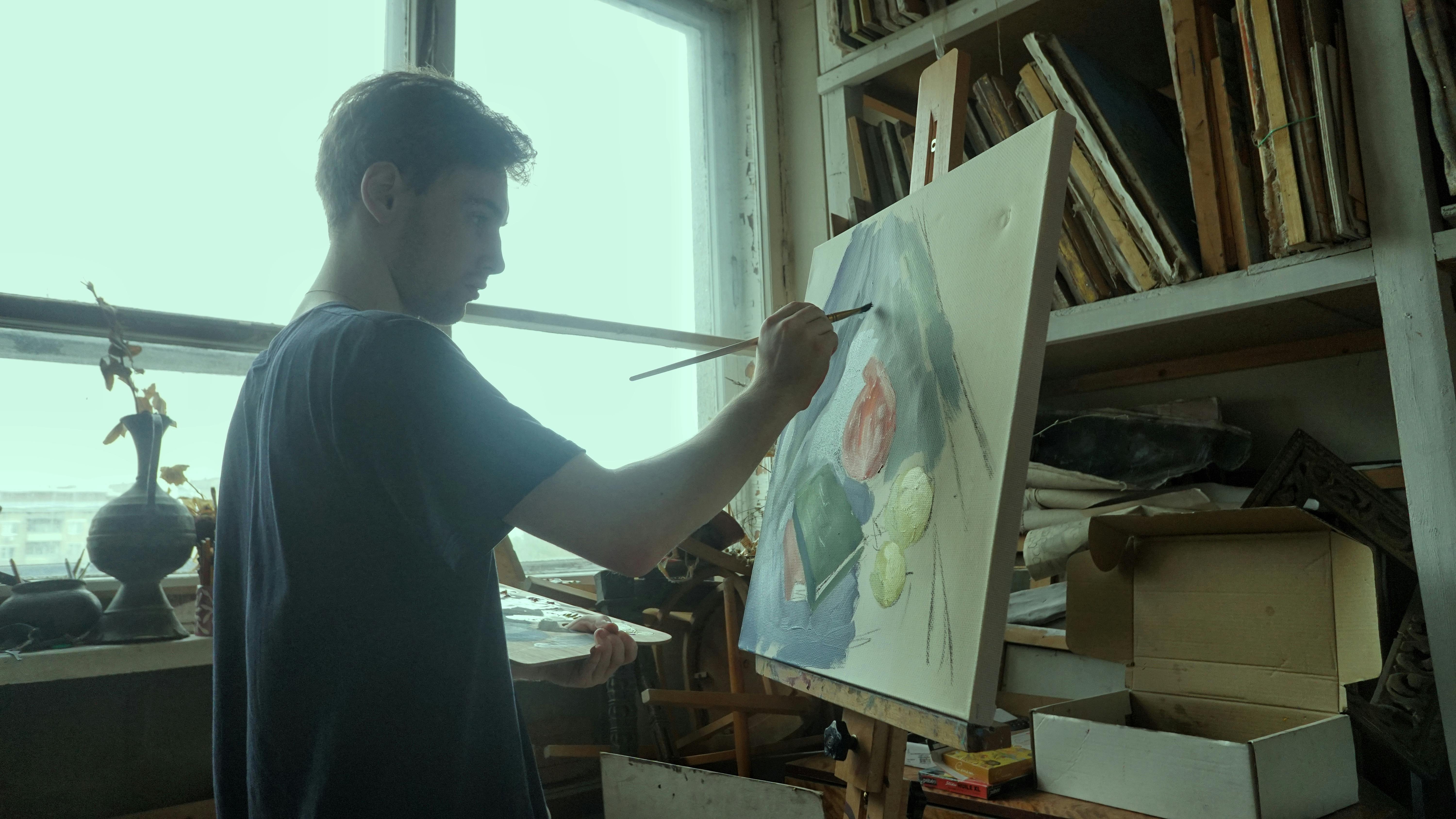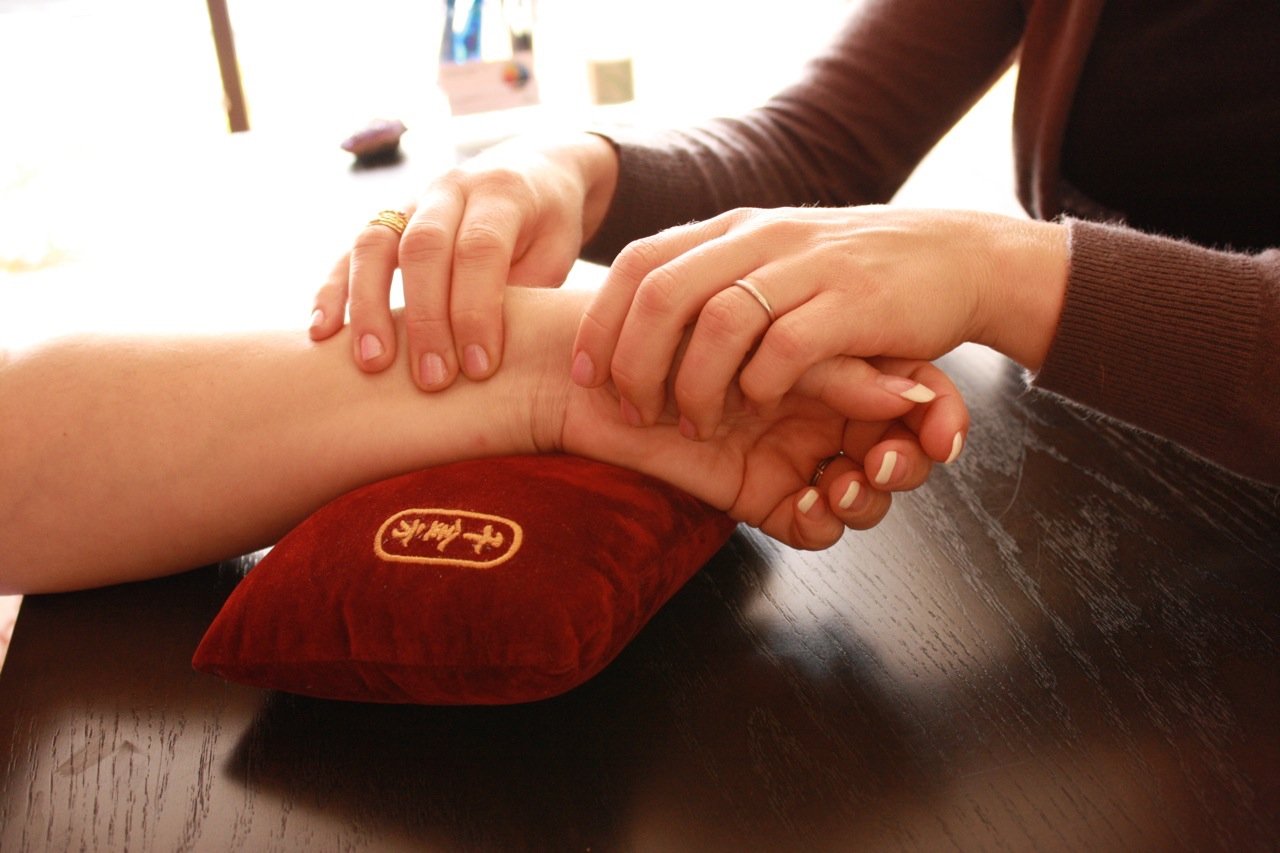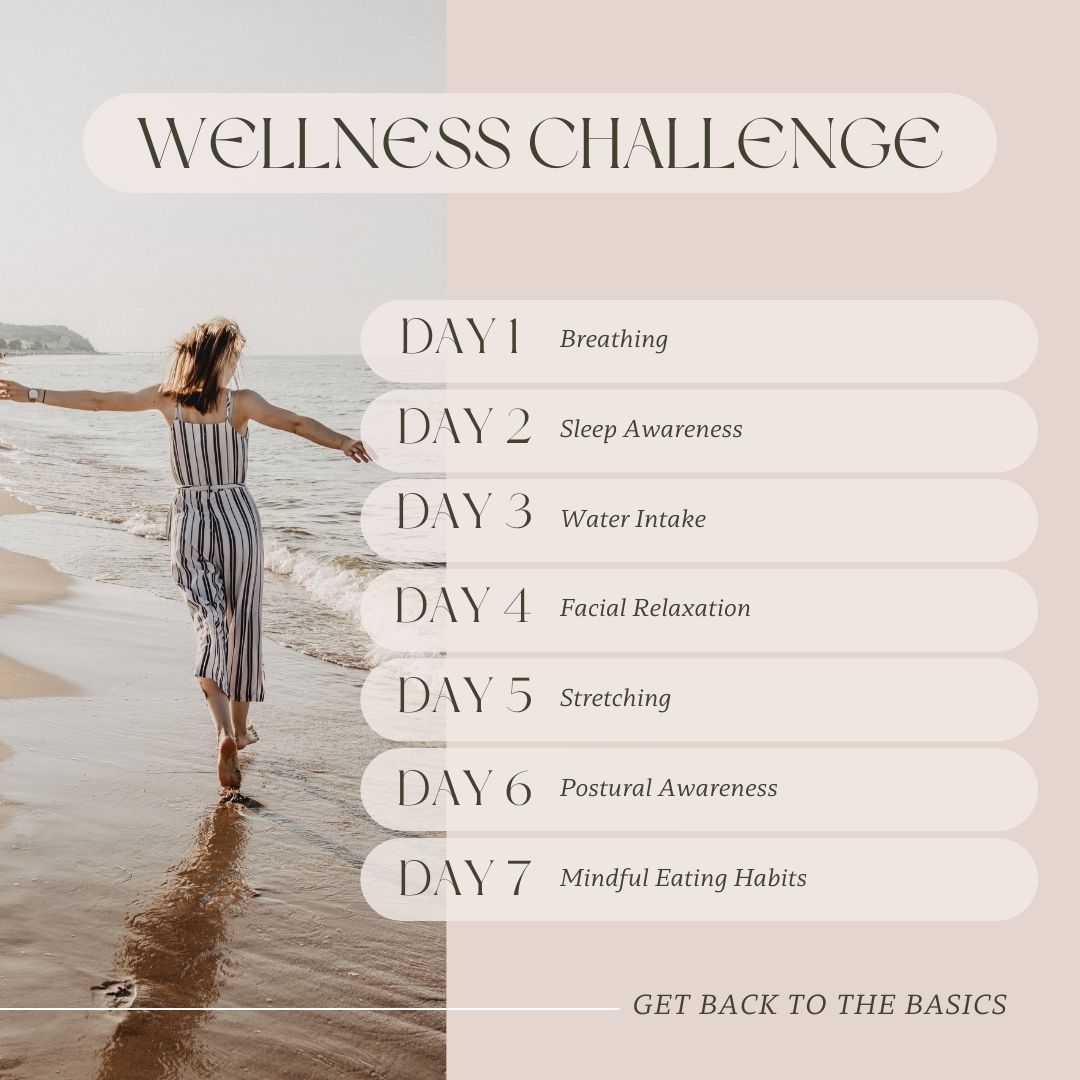The Human Body Is an Adaptation Machine—But at What Cost?
Sep 16, 2025
Just because you're surviving doesn’t mean you're thriving.
Humans are incredible. Truly. We are built to adapt—and we do it constantly, sometimes so subtly we don’t even notice it’s happening.
Think about the youngest child in a big family. Maybe they become the peacemaker, the joker, the quiet observer, or the overachiever—not because they consciously chose that role, but because that’s how they emotionally navigated the sibling dynamics they were born into. That’s adaptation.
Or the college-bound athlete pushing their body to the limit. Their muscles adapt. Their pain threshold adjusts. Their recovery routine becomes as important as training itself. And when the training regimen changes, the body recalibrates. Again, adaptation.
Ask anyone who grew up in a military family—so-called “military brats”—what it’s like to move every couple of years. New cities. New schools. New friends. Different accents. Different norms. And still, they find their footing, develop a social radar most adults never master, and learn to land on their feet, no matter where they’re dropped.
Adaptation isn’t just a response to chaos. It’s a survival superpower baked into our biology.
And yet, we often only think of adaptation as something dramatic or heroic. But it’s not always a grand moment. In fact, most of the time, we don’t even realize we’re adapting at all.
We adapt to lack of sleep by relying on caffeine and adrenaline.
We adapt to chronic joint pain by shifting how we walk or stopping activities we love.
We adapt to toxic relationships by becoming emotionally numb or chronically tense.
We adapt to stressful jobs by accepting burnout as normal and calling it “just part of adulting.”
We adapt to environmental toxins without even realizing it—think Flint, Michigan’s water crisis. An entire community forced to navigate life with poisoned water, while officials told them everything was fine. That’s not just resilience. That’s a survival mechanism.
We adapt to natural disasters, where one day there’s a house and the next there’s rubble—and somehow people pick up, rebuild, and keep going.
We adapt while traveling, even just for a week—when the language is different, the food is unfamiliar, and the customs flip our sense of normal on its head. And still, we figure it out.
We. Always. Adapt.
But here’s the thing no one tells you: just because you can adapt doesn’t mean that adaptation is healthy.
Sometimes it is. But sometimes… it’s a slow erosion. A quiet compromise. A new baseline that’s far beneath what you were meant for.
And because we’re so good at it, we don’t stop to question:
Is this actually working for me… or have I just learned to live with it?
That’s why the phrase “this too shall pass” is so spot on.
Because nothing is permanent.
Not joy. Not pain. Not any single moment in time.
But if we aren’t paying attention, if we don’t notice when our survival patterns become our identity… we risk getting stuck in a version of life that was only meant to be temporary.

When Survival Becomes Your Baseline
Adapting is one thing. But living in a constant state of adaptation—where survival becomes your everyday baseline—is another entirely.
Here’s the truth most people don’t like to hear:
Compensation isn’t free.
Every time your body, mind, or spirit adapts to something, it borrows from somewhere else. And eventually, that tab comes due.
Take that younger sibling. Sure, they may be adaptable, observant, and emotionally intuitive. But often, they’ve traded something for those skills. Maybe they didn’t get to explore who they were at their own pace. Maybe they grew up always trying to catch up or keep the peace, constantly adjusting themselves to fit into someone else’s dynamic. It’s not malicious—it’s adaptive. But it can cost them their own voice, their spontaneity, or even their confidence.
Or the college-bound athlete. They’re adapting brilliantly—stronger, faster, more conditioned by the day. But while their body grows more powerful, maybe their schedule becomes overloaded. Maybe their studies start slipping. Maybe they’re missing key lessons—not in fitness, but in balance, time management, or long-term planning. Physical adaptation came at the cost of intellectual or emotional bandwidth.
And the military “brat”? They thrive in new environments. They read a room fast. They learn how to blend. But when everything feels temporary, they may stop planting roots altogether. They might not know how to stay, how to be seen, or how to trust someone will still be around in five years. Their gift of adaptability becomes a shield from deeper connection.
It’s not just them. It’s all of us.
We adapt to chronic lack of sleep by over-caffeinating, riding the adrenaline wave, then crashing hard on weekends—and calling it productivity.
We adapt to joint pain by walking differently, favoring one side, avoiding stairs—and then wonder why a new ache shows up in the opposite hip.
We adapt to toxic relationships by going numb, staying “busy,” or over-accommodating—while quietly forgetting who we even are.
We adapt to stressful jobs by tuning out the body’s signals, ignoring the migraines, skipping meals—and calling it “grind culture.”
We adapt to environmental chaos, like the residents of Flint, Michigan, who had to live, cook, and bathe in poisoned water because it was the only option they were given. Survival doesn’t always feel like bravery. Sometimes it just looks like coping.
We adapt to cultural shifts while traveling, where even basic communication feels like a struggle—and still, we figure it out.
But again: compensation isn’t free.
Your body will do whatever it takes to keep you upright, functioning, and “fine.”
It doesn’t care about elegance.
It doesn’t care about alignment.
It just cares about getting you through the day.
That means rerouting energy. Shutting down non-essential systems. Spiking cortisol. Dulling sensation. Deprioritizing healing.
Your body doesn’t care how gracefully you move through life. It only cares that you keep moving.
And yet—that’s what makes being human so beautiful.
We’re not just survival machines. We’re creators. Decision-makers. Conscious beings with the ability to notice… and then change.
We don’t have to accept survival mode as our final form.
We can reclaim elegance.
We can choose intention.
We can shift from coping to thriving—but only if we realize we’re stuck in the loop.

“I Didn't Even Realize How Bad I Felt Until I Started Feeling Better.”
If I had a dollar for every time a patient said that, I’d be writing this from a sailboat in Bali.
Because we’re taught—especially in a Westernized culture—to push through.
We don’t listen to whispers. We wait for screams.
And even then, we’re trained to reach for something fast and numbing. A pill. A patch. A prescription. A glass of wine. Something—anything—that keeps us moving.
Because stopping? Resting? Reassessing?
That’s “weak.” That’s “lazy.”
That’s not how we were raised.
So we manage.
We function.
We “get by.”
And we convince ourselves that “managing just fine” is the best we can hope for.
Until something shifts.
Until someone walks through my door and decides they’ve had enough.
Enough of coping.
Enough of pushing.
Enough of waking up every day and silently bracing for what their body is going to throw at them next.
That’s when the real healing begins.
What I Actually Do (It’s More Than You Think)
When someone comes in for a session with me, I don’t just stick needles in and hope for the best.
I take a full health history. Not just your “what’s hurting” list—your entire story.
I ask about:
-
Stress levels (emotional and physical)
-
Pain patterns (chronic, acute, mysterious)
-
Sleep quality (and no, just because you’re unconscious doesn’t mean you’re resting)
-
Digestive function (your gut tells me more than your diary ever could)
-
Lifestyle rhythms (do you even remember the last time you relaxed on purpose?)
Then I look at your body. Literally.
Your posture? Tells me how you hold tension.
Your gait? Tells me how long you’ve been compensating.
Your energy when you walk in the room? Tells me what’s thriving… and what’s drained.
Then I take your pulse—not for your blood pressure, but to feel its quality.
Is it wiry? Slippery? Thready? Fast? All of that speaks volumes.
And I look at your tongue—color, coating, shape.
Because your body always tells the truth. It reveals every place that has adapted, compensated, or broken rhythm with balance.
Your Body Isn’t Broken. It’s Communicating.
What I put together from all of this is a health plan—a roadmap back to vitality.
And yes, it always comes with homework.
Because here’s the thing: no one can heal you except you.
I can guide. I can treat. I can support.
But your results come from your willingness to engage with the five core pillars of health:
-
Water intake – Not just some water—enough water, consistently.
-
Healthy food choices – Real food that nourishes, not just fills.
-
Sleep hygiene – Most people don’t realize how poorly they’re sleeping.
-
Consistent, moderate activity – No need to be a gym rat. You just need to move.
-
Stress management – If you’re not managing your stress, it’s managing you.
Once we identify where your patterns are off—and support your body with acupuncture and Chinese herbs—something amazing happens.
People start to feel better. Often, much better.
And that’s the light bulb moment:
“Wait… this is what it’s supposed to feel like?”
Yes.
This.
Not dragging yourself out of bed and begging for coffee to work.
Not popping ibuprofen like Tic Tacs to survive your workday.
Not needing tranquilizers just to shut your brain down at night.
Not dreading stairs.
Not avoiding mirrors.
Not skipping on your emotional health because “there’s no time.”
That wasn’t living. That was enduring.
And once you realize you’ve been adapting to dysfunction for years, you can finally start adapting in the other direction—toward balance.
It’s not about fixing just one part of you.
It’s about helping all of you come back online—body, mind, and spirit—so you’re not just surviving anymore.
You’re finally thriving.

Side Note: To Everyone Who Brags About Their “High Pain Tolerance”
Let me talk to you for a second.
If you’ve ever said, “I have a really high pain tolerance,” like it’s a badge of honor—stop.
I don’t hear that and think, “Wow, impressive.”
I hear that and think, “Oh no… your body has been suffering for a long time without your support.”
That’s not strength. That’s neglect.
It means your nervous system has raised the threshold just to keep functioning.
It means your body was sounding alarms and you ignored them so long that now those alarms are faint whispers, barely audible over the noise of your day.
You’re not feeling the pain the way you used to, but it’s still there.
Still doing damage.
Still costing you.
Your brain just learned to mute it—because it had to.
But tuning out is not the same as healing.
It’s just turning down the volume on something that still desperately needs your attention.
So if you’re reading this, and you’ve used that phrase—if you’ve been quietly proud of your ability to “just push through”—this is your wake-up call.
Stop neglecting your body. Start supporting it.
Stop powering through and start healing.
The Danger of Quiet Compromise
Here’s where it gets even more insidious: we don’t just ignore big symptoms. We normalize small ones.
The daily stiffness.
The sore neck after work.
The afternoon headache that you chalk up to screens or skipped meals.
The brain fog that “just happens sometimes.”
The digestive issues that you’ve had for so long, you just say, “I’ve always been that way.”
Even the tight chest that lingers after stress—but never quite gets checked out because “all the heart tests came back fine.”
These little compromises don’t shout. They whisper.
And because we’re busy, tired, and used to it, we promise ourselves we’ll deal with it later.
When things calm down.
When I finally get that vacation.
When the kids go back to school.
After this project wraps.
But let me ask you this:
When was the last time “later” actually arrived?
Be honest.
How many years have you told yourself that “things will calm down,” only to blink and realize it’s the end of the year… and you never even used your vacation days?
If you don’t choose to reset—life won’t do it for you.
If you don’t decide to rest—no one else will protect that space for you.
And if you keep adapting to a life that’s slowly grinding you down, one day your body will stop whispering.
It will scream.
From Adaptive to Intentional
Adaptation may be your default, but it doesn’t have to be your destiny.
There’s nothing wrong with being resilient. There’s nothing wrong with figuring out how to function when life throws you chaos. But let’s be clear—you deserve more than just survival. You deserve to feel good in your skin. You deserve a life that isn’t always about “getting through.”
You’ve adapted long enough.
To the schedule.
To the pain.
To the job you dread.
To the relationship that drains you.
To the bloating, the fatigue, the aches, the tension in your jaw, the fog in your mind.
You’ve been doing the best you could with the information and energy you had. And that matters. That effort counts. But now it’s time to stop running on autopilot.
It’s time to choose intention.
Adaptation is reactive—it waits for a problem, then finds a workaround.
Intention is proactive—it sees the pattern, then rewrites it before it becomes the next emergency.
Being intentional means you finally start asking yourself better questions:
-
What have I been tolerating in my body that I no longer want to normalize?
-
What version of “normal” have I accepted that isn’t actually healthy?
-
What do I need to feel clear, strong, rested, and aligned—not just once, but consistently?
It means you don’t wait for a diagnosis or a breakdown to change.
It means you no longer accept the idea that stress, pain, or exhaustion are just the cost of being alive.
It also means, for maybe the first time ever, you recognize that healing isn't a luxury.
It’s your responsibility.
You’re not just a nervous system reacting to survival threats.
You’re a conscious, capable human being who gets to choose how to live.
And that, right there, is what makes us different from every other species on the planet.
Your body doesn’t care about elegance. It just cares about keeping you going.
But you? You get to care about elegance. About alignment. About joy. About ease.
You get to care about building a life that actually feels like yours.
And you don’t have to do it all at once.
Start with one intentional choice.
Then another.
Then another.
Because those choices compound. They create new baselines. They shape new versions of you that aren’t running on backup systems—but operating in full color.
And once you get a taste of that?
Once you realize that healing is possible—not just for others, but for you—
you’ll never settle for “getting by” again.

The Body Was Never the Enemy
Somewhere along the way, we started seeing our bodies as the problem. As something to fix, fight, or force into submission. We stopped trusting its cues. We told it to quiet down, push through, be strong, stop complaining. And when it finally started to scream, we reached for a quick fix, hoping it would go away long enough for us to finish that work deadline, make it through the week, survive the year.
But your body isn’t the enemy. It’s the oldest, most loyal companion you’ve ever had. It’s not trying to sabotage you—it’s been trying to get your attention. Gently at first, and then louder when you didn’t listen.
You’re not broken because you’ve been tired. Or stiff. Or in pain. You’re not behind. You’re not too old. You’re not too late. What you are is powerful—and maybe a little out of practice when it comes to listening to yourself.
And if you’ve reached the point where you're finally done with just “getting by,” then good. That’s the moment everything changes. Because once you stop seeing your symptoms as random betrayals and start seeing them as intelligent communication, you take the wheel back. You stop feeling like a passenger in your own life.
What if your body didn’t feel like a war zone to manage, but a home you’re proud to live in? What if you didn’t feel like you had to earn rest or justify joy or explain why you’re slowing down? What if your health became the thing that supported everything else in your life—your relationships, your work, your dreams—instead of the thing that’s always holding you back?
This is the turning point. The moment when you move from resignation to responsibility, from adaptive to intentional. Because health is the first step to freedom—not just the absence of illness, but the presence of clarity, energy, and power. The kind of freedom that lets you show up fully. Live joyfully. Pivot confidently. Say yes without hesitation.
And if you don’t know what your next step is? That’s okay. That’s why I’m here. Whether it’s a session, a course, or simply reading these blogs each week, I want to help you understand your body’s messages and take aligned, informed action that actually makes a difference.
Because you deserve more than just surviving the day.
You deserve to thrive.
Keep moving, eat something green, and question anything that sounds like a quick fix.
Chow! Chow!
—Jess




